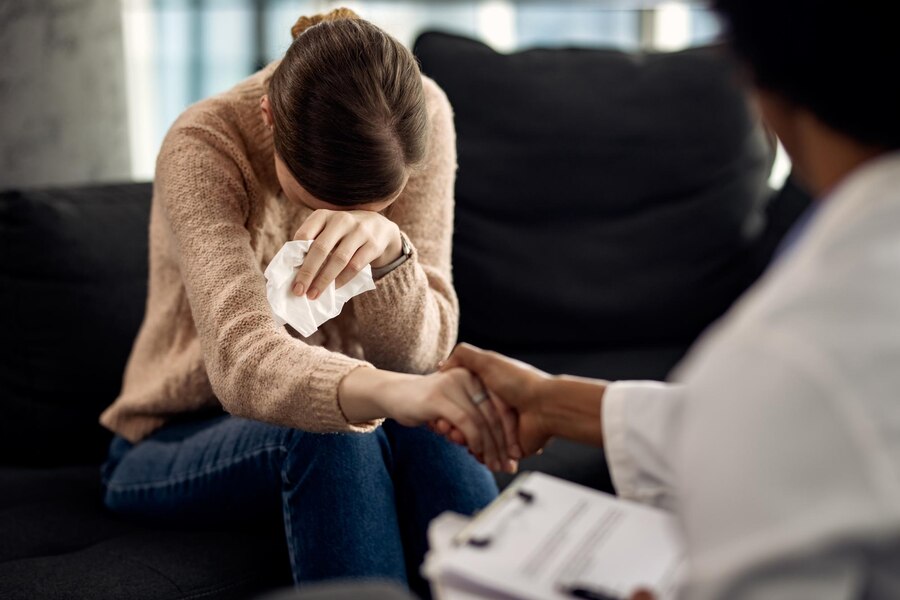Embarking on the journey of recovery through an Intensive Outpatient Program (IOP) can be both daunting and hopeful. If you’re starting your first week at an IOP in Ahwatukee, here’s what you can expect and how you can make the most of this crucial phase of your healing process.
Introduction to IOP
An Intensive Outpatient Program offers structured treatment for individuals struggling with various mental health challenges or substance use disorders. Unlike residential programs, IOP allows you to continue living at home while receiving intensive therapeutic support.
First Day: Orientation and Assessment

Your initial day at the IOP in Ahwatukee will likely begin with an orientation session. This is where you’ll meet the clinical team and get acquainted with the program’s schedule and expectations. Be prepared to share your medical history, current symptoms, and goals for treatment during your initial assessment. This helps the team tailor the program to your specific needs.
The assessment process is designed to be thorough yet compassionate, ensuring that the treatment plan is tailored to your individual needs and circumstances. It may involve standardized tests, interviews, and discussions aimed at gathering information to create a holistic understanding of your situation. This information will guide the development of your personalized treatment plan, which will be collaboratively crafted by you and the clinical team.
In addition to gathering information, the assessment serves as an opportunity for you to express your goals and expectations for treatment. Whether you’re seeking relief from anxiety, overcoming substance use challenges, or managing symptoms of depression, articulating your aspirations helps to align the treatment approach with your personal objectives.
Throughout the orientation and assessment process, you can expect to be treated with respect, empathy, and confidentiality. The clinical team is committed to creating a safe space where you can openly discuss your concerns and begin to build trust in the therapeutic process.
Understanding the Structure
IOP typically involves a combination of individual therapy, group therapy, psychoeducation sessions, and possibly medication management. Each day’s schedule will vary, but you can expect a blend of therapeutic modalities designed to address both the symptoms and underlying causes of your condition.
The structured approach of an Intensive Outpatient Program in Ahwatukee is designed to empower you with the tools and insights needed to manage your condition effectively and achieve lasting recovery. By engaging fully in the therapeutic process, embracing support from peers and professionals, and integrating new coping strategies into your daily life, you’re not only investing in your present well-being but also laying a foundation for a healthier future. Each component of the program is crafted to support your journey towards healing and resilience, guiding you towards a more fulfilling life beyond your first week and throughout your recovery journey.
Building Connections
One of the most valuable aspects of IOP is the opportunity to connect with others who are facing similar challenges. Group therapy sessions provide a supportive environment where you can share experiences, gain insights, and learn from peers. Building these connections can be instrumental in your journey towards recovery.
In addition to group therapy, the IOP setting fosters connections through various activities and structured exercises designed to promote teamwork and communication skills. These activities not only break down barriers but also reinforce the idea that recovery is a collaborative effort.
Learning Coping Skills
Throughout your first week, you’ll begin learning practical coping strategies to manage stress, cravings (if applicable), and triggers that contribute to your condition. These skills are essential for maintaining stability and preventing relapse once you complete the program.
Identifying Triggers and Stressors
One of the first steps in learning coping skills is identifying what triggers your symptoms or cravings. Whether it’s certain situations, emotions, or thoughts, understanding these triggers allows you to develop strategies to navigate them effectively.
Developing Healthy Responses
Coping skills focus on developing healthy responses to triggers and stressors. This involves learning techniques such as deep breathing exercises, progressive muscle relaxation, mindfulness practices, and guided imagery. These methods help you stay grounded and calm in challenging situations.
Building Resilience
Coping skills build resilience by teaching you how to bounce back from setbacks and challenges. You’ll learn to problem-solve effectively, adapt to changes, and maintain a positive outlook even during difficult times.
Enhancing Communication
Effective communication is a crucial coping skill that helps you express your feelings and needs assertively and constructively. Through therapy sessions and group interactions, you’ll practice communication techniques that foster healthier relationships and reduce misunderstandings.
Practicing Self-Care
Self-care is an integral part of coping skills, emphasizing the importance of taking care of your physical, emotional, and mental well-being. This includes establishing routines for adequate sleep, nutrition, exercise, and relaxation techniques that promote overall wellness.
Developing Distraction Techniques
Coping skills also involve learning distraction techniques to shift your focus away from negative thoughts or impulses. Engaging in hobbies, creative activities, or physical exercises can provide a healthy outlet and help redirect your attention towards positive experiences.
Setting Realistic Expectations
Recovery is a process that takes time and effort. It’s important to set realistic expectations for your progress during your first week. Some days may feel more challenging than others, but each step forward, no matter how small, is a significant achievement.
Setting realistic expectations during your first week in an IOP in Ahwatukee involves understanding the pace of recovery, identifying achievable goals, embracing the learning process, accepting support, practicing self-compassion, celebrating progress, and staying committed to your journey. By approaching your recovery with patience, determination, and a positive mindset, you lay a solid foundation for lasting change and improved well-being.
Embracing Support
Your support network extends beyond the clinical team to include family, friends, and possibly support groups outside of the IOP. Embrace the encouragement and guidance offered by loved ones and stay connected with those who want to see you succeed.
Embracing support within and beyond the IOP in Ahwatukee is an essential component of your journey towards recovery. Whether from the dedicated professionals within the program, the understanding peers in group therapy, or the unwavering encouragement of family and friends, each form of support contributes to your strength and resilience. By fostering these connections and nurturing your own well-being, you create a solid foundation for sustained progress and a brighter future ahead.
Conclusion
As you embark on your journey with Core Recovery’s Intensive Outpatient Program (IOP) in Ahwatukee, AZ, you can anticipate a supportive environment designed to foster your recovery journey. The first week is crucial as you familiarize yourself with our compassionate staff, structured sessions, and personalized treatment plans tailored to your needs. Whether you’re seeking addiction recovery or mental health support, our comprehensive approach aims to empower you towards lasting change.
Ready to take the next step? Call Core Recovery today at 602-926-7729 to speak with our admissions team and begin your transformative journey towards wellness. Our dedicated staff is here to answer any questions you may have and help you get started on the path to a healthier, more fulfilling life.





